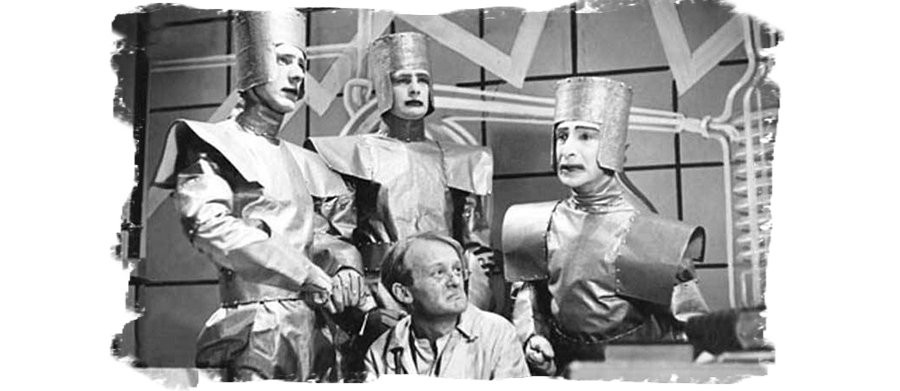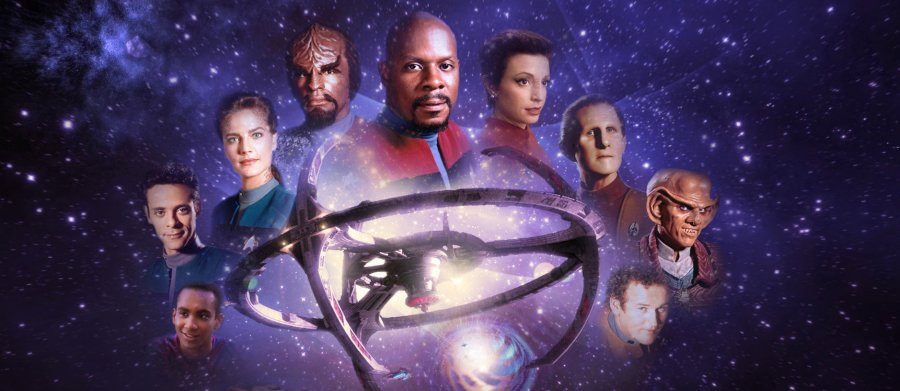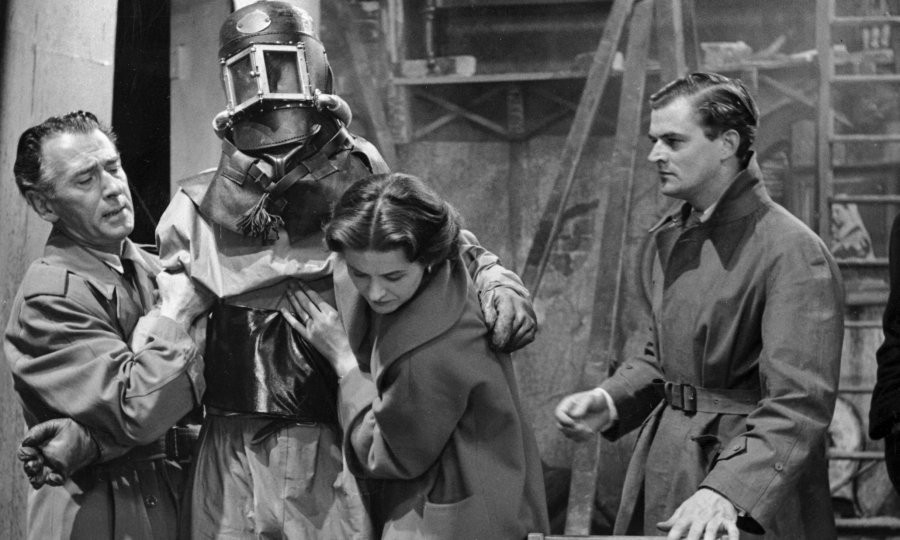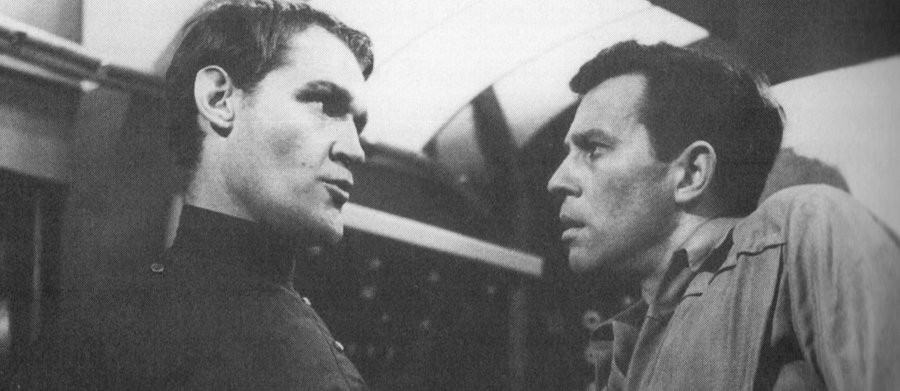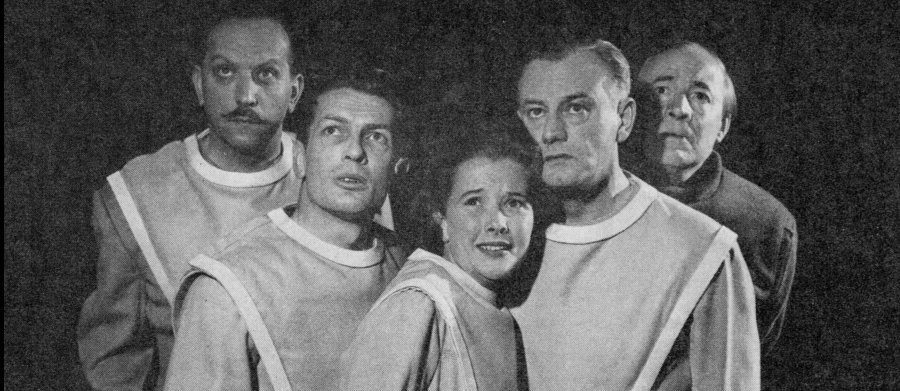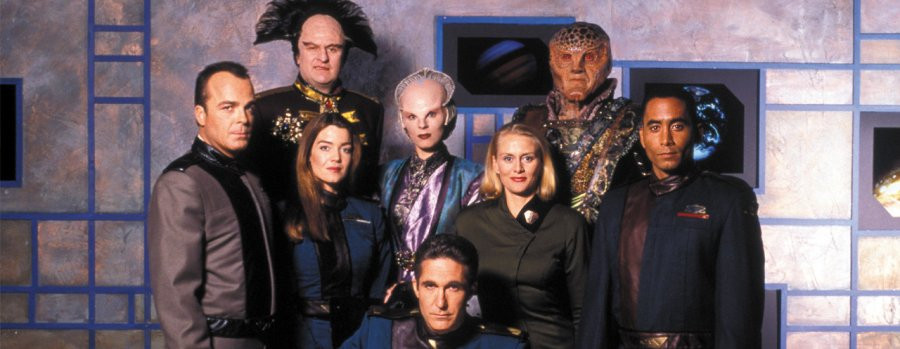
Babylon 5
1993 - United StatesWriter and producer J. Michael Straczynski’s brainchild, Babylon 5, is best described as a richly layered and sweeping televisual saga – a novel in episodic form. The series charts galaxy-spanning events triggered by the resurgence of an ancient and nearly omnipotent alien race known only as “The Shadows,” and the profound impact this has on both human and alien populations aboard the last of the Babylon stations – Babylon 5.
Stretching five miles in length, the station is located in a key neutral sector of space, serving as both a transit hub and a diplomatic crossroads for the galaxy’s major civilised species. Initially, its primary purpose is to host fragile peace negotiations aimed at bringing lasting stability to a galaxy long plagued by warfare among five dominant interstellar powers: the Earth Alliance, the Minbari Federation, the Narn Regime, the Centauri Republic, and the mysterious and unfathomably ancient Vorlon Empire. Presiding over this politically charged environment is Commander Jeffrey Sinclair – portrayed by accomplished stage actor Michael O’Hare – a former fighter pilot and war hero of the Earth-Minbari conflict, whose seemingly routine command hides a pivotal role in the greater events to come. From the second series onwards, Sinclair is succeeded by Captain John Sheridan (played by Bruce Boxleitner), following O’Hare’s decision to return to theatre work.
Due to its format and setting, Babylon 5 was initially subject to comparisons with various Star Trek series, though Straczynski always maintained that his concept had been in development since as early as 1988. As the series progressed, its distinctiveness became increasingly apparent. With its clearly defined narrative structure – a beginning, middle, and end – the series unfolded a dark, intricate tale of galactic unrest, filled with political intrigue, betrayal, courage, and sacrifice. It soon became evident that this was a deliberately crafted epic with a predetermined arc, rather than a typical episodic drama.
Straczynski has acknowledged The Lord of the Rings as a major influence on his storytelling, a parallel that becomes more evident as the five-year narrative develops.
One of the series’ greatest triumphs lies in the realistic and emotionally resonant development of its central characters, particularly among its alien cast. From the outset, the show benefited from a strong ensemble of talented performers. Renowned European actress Mira Furlan brought a poised dignity to Minbari ambassador Delenn, blending compassion with inner strength. Former comedian-turned-character actor Peter Jurasik gave an evolving performance as Centauri ambassador Londo Mollari, transforming him from a figure of comic pomposity into a deeply tragic ruler presiding over a dying empire. Perhaps most notable, however, was Andreas Katsulas – known to many science fiction fans for his role as the Romulan commander Tomalak in Star Trek: The Next Generation – whose portrayal of the reptilian Narn ambassador G’Kar stands as one of the series’ most powerful achievements. Despite wearing heavy prosthetics, Katsulas delivered a nuanced, emotionally rich performance that guided G’Kar’s journey from antagonist to revered spiritual leader.
Featuring pioneering CGI effects for its time and an epic scope that often compensated for occasional script shortcomings, Babylon 5 concluded its main arc with significant acclaim. It later expanded into a series of well-received television films, a short-lived spin-off (Crusade), and a hugely successful merchandising franchise.
Seen this show? How do you rate it?
Seen this show? How do you rate it?
Published on November 28th, 2018. Written by Malcolm Alexander for Television Heaven.



